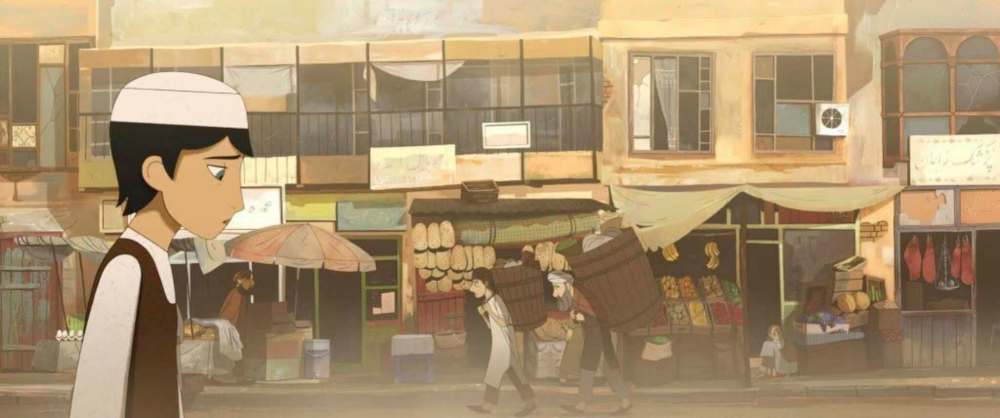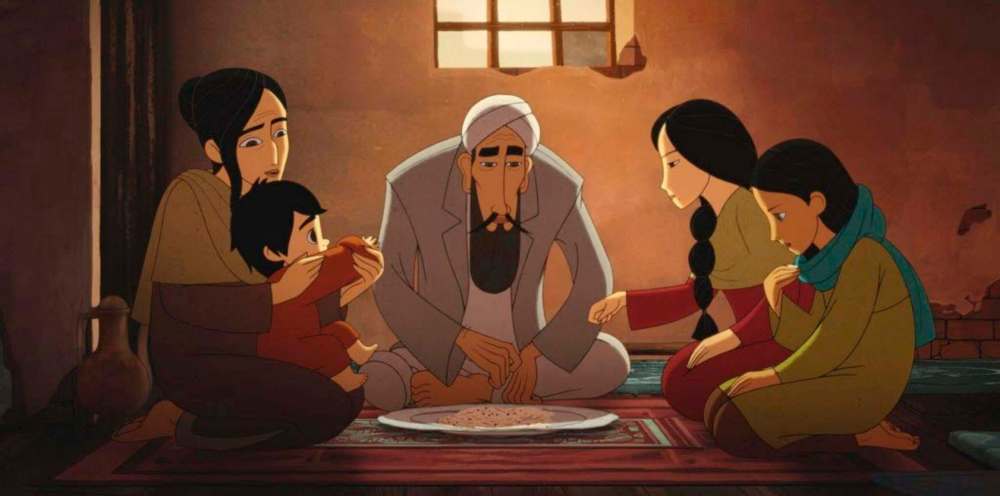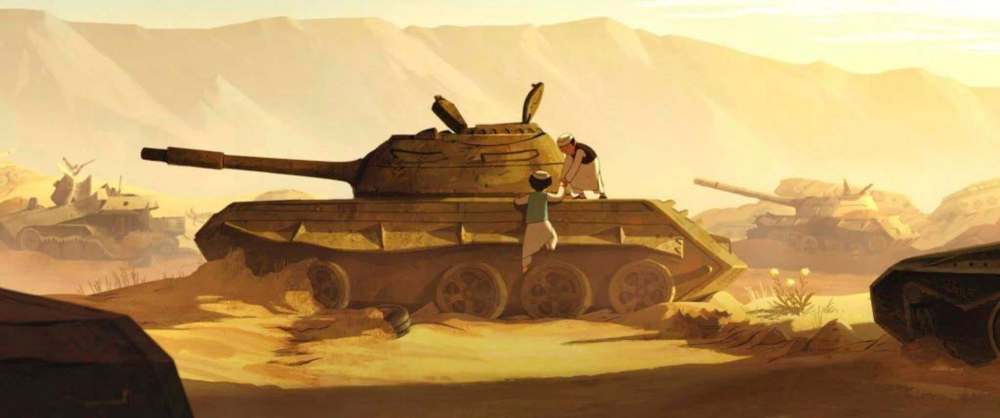Hope and resilience in the face of oppression
Animated adaptation carries same emotional weight as bestselling children's novel
Advertisement
Read this article for free:
or
Already have an account? Log in here »
To continue reading, please subscribe:
Monthly Digital Subscription
$0 for the first 4 weeks*
- Enjoy unlimited reading on winnipegfreepress.com
- Read the E-Edition, our digital replica newspaper
- Access News Break, our award-winning app
- Play interactive puzzles
*No charge for 4 weeks then price increases to the regular rate of $19.00 plus GST every four weeks. Offer available to new and qualified returning subscribers only. Cancel any time.
Monthly Digital Subscription
$4.75/week*
- Enjoy unlimited reading on winnipegfreepress.com
- Read the E-Edition, our digital replica newspaper
- Access News Break, our award-winning app
- Play interactive puzzles
*Billed as $19 plus GST every four weeks. Cancel any time.
To continue reading, please subscribe:
Add Free Press access to your Brandon Sun subscription for only an additional
$1 for the first 4 weeks*
*Your next subscription payment will increase by $1.00 and you will be charged $16.99 plus GST for four weeks. After four weeks, your payment will increase to $23.99 plus GST every four weeks.
Read unlimited articles for free today:
or
Already have an account? Log in here »
Hey there, time traveller!
This article was published 09/02/2018 (2854 days ago), so information in it may no longer be current.
Sensitively handled and powerfully and poignantly realized, this family-friendly animated drama centres on Parvana (voiced by Degrassi: The Next Generation’s Saara Chaudry), an 11-year-old girl living in Kabul under repressive Taliban rule.
After the arbitrary arrest of her father (Ali Badshah), a kindly former history teacher who has taught his daughters to read and who hides forbidden books beneath the floorboards, Parvana’s family is left destitute. Under the Taliban, women are not allowed to leave the house without a male relative.
Cutting her hair and dressing as a boy, Parvana is able to work, fetch water and buy food in the market. She becomes the family’s provider, helping her increasingly overwhelmed mother (Laara Sadiq), her older sister (Shaista Latif) — with whom she shares a close, but fractious bond — and her baby brother.
Even as Parvana shoulders this burden, she finds a new kind of (relative) freedom. She moves through the world in a different way.
“When you’re a boy, you can go anywhere you like,” Parvana says wonderingly. Her already stubborn, independent spirit blossoms into plans to rescue her father and maybe even change her own life.
Meanwhile, she parallels her real-world adventures by spinning a fable about a brave village boy who defies a despotic elephant king, which she uses to entertain her little brother.
Based on the bestselling children’s novel by Canadian Deborah Ellis, The Breadwinner approaches the turmoil of Afghanistan’s recent past with care. (The author spent months interviewing Afghan women and girls in refugee camps in Pakistan as research for the book.)
Along with co-scripter Anita Doron, Ellis is able to convey some sense of the larger, longer historical context of the region, give moral shadings to a range of characters and bring crafted realism to Parvana’s day-to-day struggles.

Director Nora Twomey (The Secret of Kells) elegantly combines several styles of animation. The film, which has earned an Academy Award nomination for best animated feature, relies on stylized line-drawn techniques for the characters, along with intensely realistic backgrounds, bringing an austere beauty to the area in and around Kabul, from crowded markets to dry, dusty rutted rural roads to the American fighter planes periodically roaring through the sky.
Parvana’s narrative about the boy and the elephant king is relayed in what seems like an old-fashioned cut-paper animation style (but is actually digital), giving her nightly tales a vividly coloured, sometimes surreal effect.
Like the book, which tends to be taught in schools to students around Parvana’s age, the film is geared toward kids around 11 and up. Twomey, Ellis and Doron have simplified the book’s storyline, but kept its emotional power — frankly describing harsh injustices and outright violence, but tempering Parvana’s difficult situation with a sense of hope and resilience. In particular, the film celebrates the stories we tell ourselves and each other — the stories that educate, encourage and inspire.
alison.gillmor@freepress.mb.ca

Studying at the University of Winnipeg and later Toronto’s York University, Alison Gillmor planned to become an art historian. She ended up catching the journalism bug when she started as visual arts reviewer at the Winnipeg Free Press in 1992.
Our newsroom depends on a growing audience of readers to power our journalism. If you are not a paid reader, please consider becoming a subscriber.
Our newsroom depends on its audience of readers to power our journalism. Thank you for your support.




